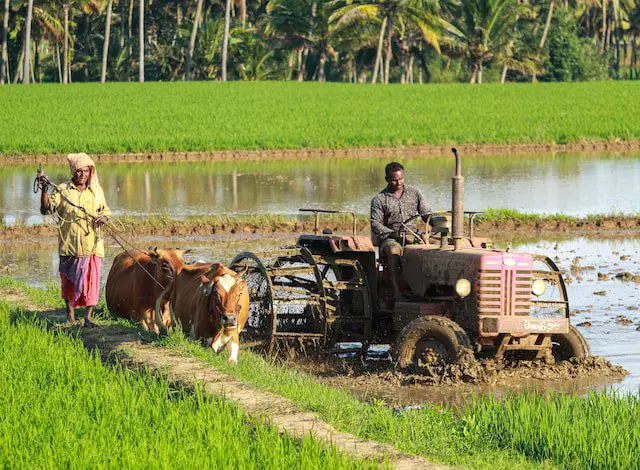Scholarship details
Nurturing Agricultural Development: The $1,500 Tunisian Research Fellowship, 2025
In the rapidly evolving landscape of global agriculture, technology and innovation hold pivotal roles in ensuring sustainable growth. The $1,500 Tunisian Research Fellowship for Agricultural Development, 2025, embodies this transformation by supporting aspiring minds dedicated to advancing agricultural practices. Targeted at both local and African students, this fellowship provides a unique opportunity in Tunisia, a country with rich agricultural heritage and vast potential for growth.
Overview of the Host Organization
The Tunisian Research Fellowship is orchestrated by the National Institute of Agricultural Research of Tunisia (INRAT). Established in 1913, INRAT is a beacon of agricultural innovation and development in North Africa. The institute’s mission is to enhance agricultural productivity and sustainability through rigorous research, tailored training programs, and dedicated support to emergent agripreneurs. INRAT’s work spans various facets of agriculture, including crop improvement, pest control, and sustainable farming practices. It actively collaborates with international bodies, fostering a global dialogue on best practices and innovative strategies.
Discovering Tunisia
Tunisia is a land of rich cultural heritage and diverse landscapes. Situated in North Africa along the Mediterranean coast, it serves as a bridge between Europe and the Arab world, offering a unique blend of influences. Tunisia’s landscape is as diverse as its culture, ranging from the Saharan dunes in the south to fertile plains and extensive olive groves in the north.
Agriculture is one of Tunisia’s oldest and most significant sectors, contributing to both the economy and societal welfare. The country’s agricultural prowess is evident in its leading production of olives, grains, and dates. However, challenges such as water scarcity and climate change necessitate innovation and research to sustain and enhance productivity.
Developing the Next Generation of Agripreneurs
The Tunisian Research Fellowship is not only a significant financial aid but also a catalyst for students eager to drive agricultural advancement. With the fellowship’s backing, researchers have the opportunity to engage in pivotal projects aimed at improving crop yields, enhancing food security, and developing sustainable practices that can be replicated across the continent.
In line with other international educational opportunities like the Young Entrepreneurs Award in Sydney, Australia, 2024 with a $10,000 Prize, this fellowship also encourages young minds to think entrepreneurially. It hopes to inspire the creation of startups that can harness innovative solutions within agriculture, much like the entrepreneurial spirit celebrated in Sydney.
Expanding Horizons for African Students
For African students, the Tunisian Research Fellowship symbolizes more than financial support; it’s an invitation to collaborate and contribute to regional and global agricultural development. These students bring diverse perspectives and experiences, enriching the research endeavors at INRAT. This cross-continental collaboration aims to foster a spirit of unity and innovation, promising to yield solutions that can be scaled across Africa.
Bridging Global Educational Opportunities
Similar to the £4,000 Chancellor’s Indonesia Scholarship for Study in the United Kingdom, students who engage with the Tunisian Fellowship gain access to a network of fellow researchers and scholars. This network can be invaluable for career development, providing insights into global agricultural practices and opportunities for further education or collaborative projects.
Both the Indonesian Scholarship and the Tunisian Fellowship represent efforts from countries to elevate research and education by integrating international insights. These programs reflect a global commitment to fostering intelligence and capacity across borders, ultimately aimed at solving the pressing issues facing agriculture worldwide.
Tunisia: Environment and Agricultural Challenges
Education, like agriculture, is a critical pillar for Tunisia’s development. The country continues to invest in innovative research to harness its natural resources effectively. The challenges of water management, soil conservation, and crop resilience are at the forefront of current research initiatives.
Through the Research Fellowship, students are encouraged to propose solutions that address these pressing issues. The goal is to engage the intellectual potential of both local and international minds in a coordinated effort to drive sustainable development.
Leveraging the Fellowship for Wider Impact
Recipients of the fellowship are expected to actively participate in workshops, engage with local farming communities, and contribute to knowledge dissemination. By doing so, the program ensures that research findings translate into practical applications which benefit farmers on the ground.
Furthermore, the fellowship lays a strong emphasis on collaborative projects. By partnering with other international scholars and institutions, students can leverage a broader range of expertise, techniques, and ideas to enrich their research.
Shared Vision for Agricultural Sustainability
The fellowship’s call to action is clear: it seeks to create innovative solutions that can be implemented in Tunisia and expanded across Africa. The mechanism of sharing knowledge and strategies globally aligns with the objectives of similar initiatives around the world, such as in Sydney and the UK, which all intend to inspire global change-making mindsets among their participants.
Conclusion: A Vision Toward Progress
The $1,500 Tunisian Research Fellowship for Agricultural Development, 2025, is more than just financial aid; it’s a platform for growth and innovation designed to stimulate sustainable agricultural practices. By engaging local and African students, the initiative fosters a cooperative, global approach towards addressing key challenges in agriculture.
In an increasingly interconnected world, collaborations like this fellowship are vital. They not only empower individual researchers but also stand as testaments to the power of cross-border cooperation in tackling global issues. Just as scholarships in Australia and the UK seek to nurture potential, the Tunisian Fellowship develops a crucial base for supporting transformative agricultural leaders of tomorrow.





















